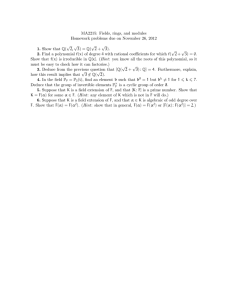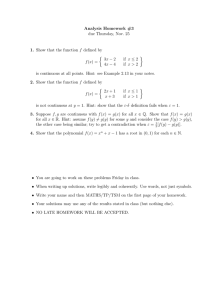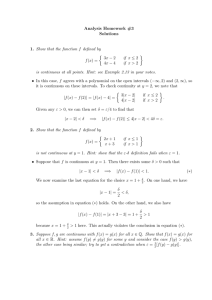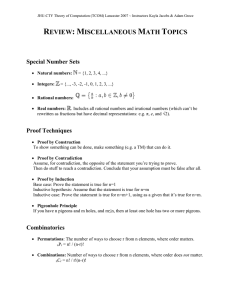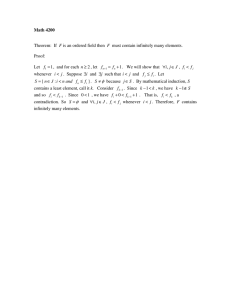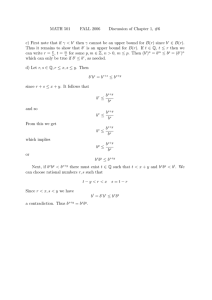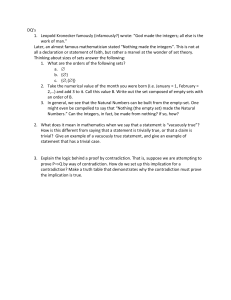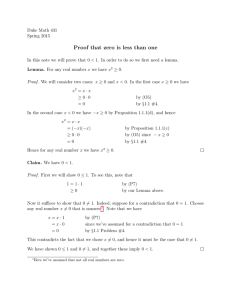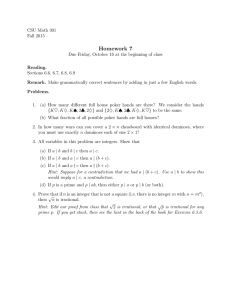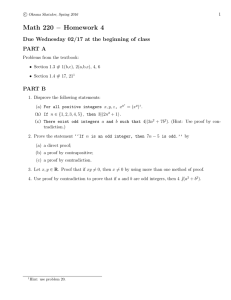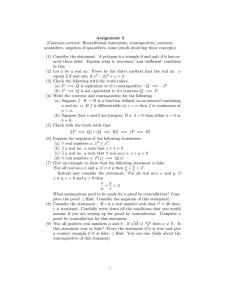Square Root of a Function
advertisement
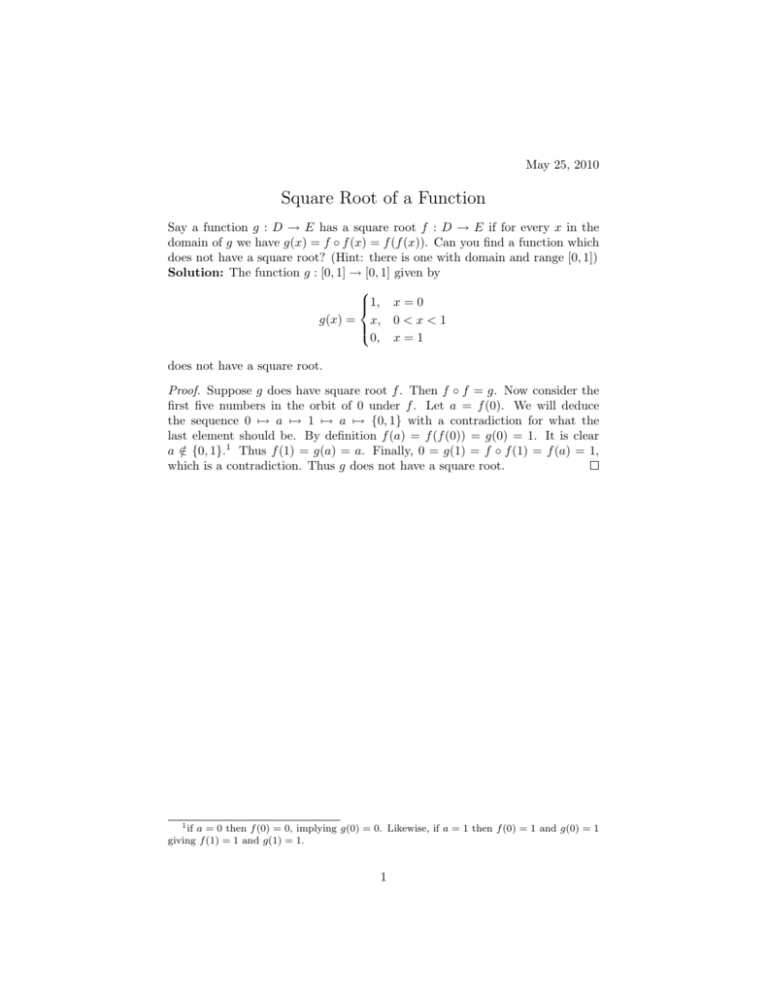
May 25, 2010
Square Root of a Function
Say a function g : D → E has a square root f : D → E if for every x in the
domain of g we have g(x) = f ◦ f (x) = f (f (x)). Can you find a function which
does not have a square root? (Hint: there is one with domain and range [0, 1])
Solution: The function g : [0, 1] → [0, 1] given by
1, x = 0
g(x) = x, 0 < x < 1
0, x = 1
does not have a square root.
Proof. Suppose g does have square root f . Then f ◦ f = g. Now consider the
first five numbers in the orbit of 0 under f . Let a = f (0). We will deduce
the sequence 0 7→ a 7→ 1 7→ a 7→ {0, 1} with a contradiction for what the
last element should be. By definition f (a) = f (f (0)) = g(0) = 1. It is clear
a∈
/ {0, 1}.1 Thus f (1) = g(a) = a. Finally, 0 = g(1) = f ◦ f (1) = f (a) = 1,
which is a contradiction. Thus g does not have a square root.
1 if a = 0 then f (0) = 0, implying g(0) = 0. Likewise, if a = 1 then f (0) = 1 and g(0) = 1
giving f (1) = 1 and g(1) = 1.
1
